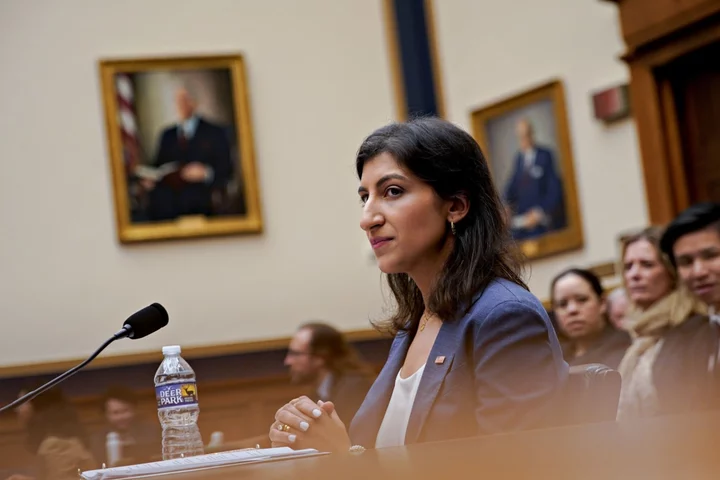US antitrust agencies stepped up the Biden administration’s crackdown on mergers and acquisitions with a sweeping overhaul of rules the government uses to determine whether deals violate competition law.
The 13 new guidelines proposed Wednesday by the Justice Department and Federal Trade Commission are part of an effort to curb the rise of companies that seek to dominate their industries by buying up rivals. The agencies are asking for public comments on the proposal over the next 60 days.
“Unchecked consolidation threatens the free and fair markets upon which our economy is based,” Attorney General Merrick B. Garland said in a statement. “These updated Merger Guidelines respond to modern market realities.”
Under President Joe Biden, the US has doubled down on efforts to block more mergers after decades of a light-touch approach by government. FTC Chair Lina Khan and Jonathan Kanter, the DOJ’s top antitrust cop, argue previous administrations were too permissive, leading to a rise in corporate concentration that has limited choices for consumers and contributed to higher prices.
Under the proposed guidelines, enforcers said they will examine multiple mergers if a deal is part of a series of acquisitions made by a company within the same market. Agencies also will focus on the impact on workers when a deal involves companies that formerly competed for labor.
Enforcers may assume a deal would harm competition if the company’s market share after the acquisition will be greater than 30%, according to the agencies.
The proposals are likely to draw criticism from business groups like the US Chamber of Commerce and House Republicans, many of whom have criticized Khan and Kanter for their more aggressive approach to antitrust enforcement.
The agencies began the merger rule revamp in January 2022 and have spent the past 18 months honing new guidelines that would apply to all mergers and acquisitions. Last month, they also proposed an overhaul of the information that companies must provide during merger reviews for the first time in 45 years.
The agencies last changed the guidelines for mergers between direct competitors in 2010. Separate guidelines for so-called vertical deals, which involve companies that operate in the same supply chain but don’t compete directly, were revised in 2020 under former President Donald Trump. Khan and her fellow Democratic FTC commissioners withdrew the agency’s approval of those changes in 2021.
The new proposal includes rules related to both horizontal and vertical deals as well as ones that involve online platforms.
The changes come on the heels of several bruising defeats for antitrust enforcers, including last week’s court ruling in favor of Microsoft Corp.’s $69 billion deal to buy Activision Blizzard Inc. The FTC had challenged the merger, arguing that Microsoft could withhold Activision’s key titles from rival consoles or game services. The agency is appealing, though a court declined to pause the merger while the FTC seeks to reverse Microsoft’s win.
The Microsoft loss marked the third time US enforcers have failed in attempts to block a vertical merger in litigation, after the Justice Department’s unsuccessful bids to block UnitedHealth Group Inc. from buying up Change Healthcare Inc. last year and AT&T Inc.’s 2018 Time Warner merger.









